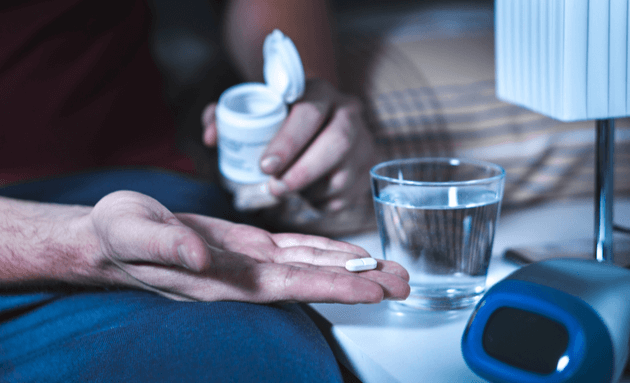Understanding The Link Between Cancer And Insomnia
Insomnia or the inability to sleep is a common disorder that affects a large section of our society. Cancer patients can frequently suffer from some form of this sleep disorder due to certain aspects of this disease. Particularly for cancer, there are two key factors behind this - Side Effects of the medication and Fatigue or Stress.
Side Effects of Medication

Cancer medication drugs, especially during chemotherapy can lead to unintended side effects like sleep disruption. Ask your physician about such interactions, especially if you are on steroids - as they can cause energy spikes and interfere with your sleep.
Fatigue and Stress
Life with cancer is a constant battle when it comes to energy management. The daily stresses and rigours of having cancer can greatly stress your mind and in turn, disturb your sleep cycles and cause insomnia. Make it a point to constantly monitor your energy levels, get adequate exercise, have healthy meals and speak to a trusted counsellor or confidante to deal with any mental stresses on your mind.
Why is Insomnia a Problem for Cancer Recovery?
1. Lowered Immune Function: Poor sleep can have a drastic effect on the immunity of a cancer patient. This is partly because irregular sleep habits can interfere with the functioning of your endocrine system in the long run. This coupled with the immuno-compromising side effects of chemotherapy can wreak havoc to your immune system and leave you susceptible to a host of infectious diseases.

2. Lethargy
A night of poor sleep can spoil your whole day. Insomniacs will find it a challenge to carry out the simplest of tasks in the aftermath of a sleepless night. This can put you at the risk of dozing off if you are trying to carry out everyday activities like driving or working on the computer.
3. Lowered Mental Acuity

Good sleep keeps you sharp. Insomniacs will, however, find it a challenge to concentrate on mundane tasks that require mental exertion as well as routinely forget the simplest of things due to gaps in their memory.
4. Slower Recovery
Poor sleep can interfere with your cancer recovery in multiple ways. Whether it's a missed appointment to get your chemotherapy or forgetting to take your cancer medication. Good sleep is an essential and often ignored component in your journey to recovery from cancer
5. Increased Risk of Depression

Suffering from cancer-related depression? Poor sleep habits can significantly worsen your condition. Try to maintain a continued conversation with a trusted mental counsellor whenever you feel low. You can also try to maintain a sleep tracker in the form of a diary to track your sleep cycles and daily activities to identify the root cause of your insomnia.




